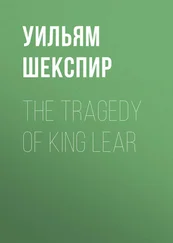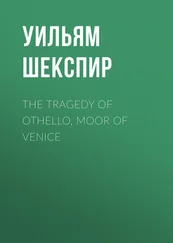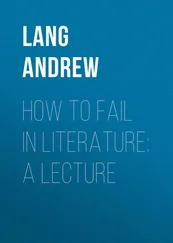Andrew Cecil Bradley - Shakespearean Tragedy - Lectures on Hamlet, Othello, King Lear, Macbeth
Здесь есть возможность читать онлайн «Andrew Cecil Bradley - Shakespearean Tragedy - Lectures on Hamlet, Othello, King Lear, Macbeth» — ознакомительный отрывок электронной книги совершенно бесплатно, а после прочтения отрывка купить полную версию. В некоторых случаях можно слушать аудио, скачать через торрент в формате fb2 и присутствует краткое содержание. Жанр: Биографии и Мемуары, foreign_antique, на английском языке. Описание произведения, (предисловие) а так же отзывы посетителей доступны на портале библиотеки ЛибКат.
- Название:Shakespearean Tragedy: Lectures on Hamlet, Othello, King Lear, Macbeth
- Автор:
- Жанр:
- Год:неизвестен
- ISBN:нет данных
- Рейтинг книги:5 / 5. Голосов: 1
-
Избранное:Добавить в избранное
- Отзывы:
-
Ваша оценка:
- 100
- 1
- 2
- 3
- 4
- 5
Shakespearean Tragedy: Lectures on Hamlet, Othello, King Lear, Macbeth: краткое содержание, описание и аннотация
Предлагаем к чтению аннотацию, описание, краткое содержание или предисловие (зависит от того, что написал сам автор книги «Shakespearean Tragedy: Lectures on Hamlet, Othello, King Lear, Macbeth»). Если вы не нашли необходимую информацию о книге — напишите в комментариях, мы постараемся отыскать её.
Shakespearean Tragedy: Lectures on Hamlet, Othello, King Lear, Macbeth — читать онлайн ознакомительный отрывок
Ниже представлен текст книги, разбитый по страницам. Система сохранения места последней прочитанной страницы, позволяет с удобством читать онлайн бесплатно книгу «Shakespearean Tragedy: Lectures on Hamlet, Othello, King Lear, Macbeth», без необходимости каждый раз заново искать на чём Вы остановились. Поставьте закладку, и сможете в любой момент перейти на страницу, на которой закончили чтение.
Интервал:
Закладка:
Now I at once admit not only that this view is much more attractive and more truly tragic than the ordinary conscience theory, but that it has more verisimilitude. But I feel no doubt that it does not answer to Shakespeare's meaning, and I will simply mention, out of many objections to it, three which seem to be fatal. ( a ) If it answers to Shakespeare's meaning, why in the world did he conceal that meaning until the last Act? The facts adduced above seem to show beyond question that, on the hypothesis, he did so. That he did so is surely next door to incredible. In any case, it certainly requires an explanation, and certainly has not received one. ( b ) Let us test the theory by reference to a single important passage, that where Hamlet finds the King at prayer and spares him. The reason Hamlet gives himself for sparing the King is that, if he kills him now, he will send him to heaven, whereas he desires to send him to hell. Now, this reason may be an unconscious excuse, but is it believable that, if the real reason had been the stirrings of his deeper conscience, that could have masked itself in the form of a desire to send his enemy's soul to hell? Is not the idea quite ludicrous? ( c ) The theory requires us to suppose that, when the Ghost enjoins Hamlet to avenge the murder of his father, it is laying on him a duty which we are to understand to be no duty but the very reverse. And is not that supposition wholly contrary to the natural impression which we all receive in reading the play? Surely it is clear that, whatever we in the twentieth century may think about Hamlet's duty, we are meant in the play to assume that he ought to have obeyed the Ghost.
The conscience theory, then, in either of its forms we must reject. But it may remind us of points worth noting. In the first place, it is certainly true that Hamlet, in spite of some appearances to the contrary, was, as Goethe said, of a most moral nature, and had a great anxiety to do right. In this anxiety he resembles Brutus, and it is stronger in him than in any of the later heroes. And, secondly, it is highly probable that in his interminable broodings the kind of paralysis with which he was stricken masked itself in the shape of conscientious scruples as well as in many other shapes. And, finally, in his shrinking from the deed there was probably, together with much else, something which may be called a moral, though not a conscientious, repulsion: I mean a repugnance to the idea of falling suddenly on a man who could not defend himself. This, so far as we can see, was the only plan that Hamlet ever contemplated. There is no positive evidence in the play that he regarded it with the aversion that any brave and honourable man, one must suppose, would feel for it; but, as Hamlet certainly was brave and honourable, we may presume that he did so.
(3) We come next to what may be called the sentimental view of Hamlet, a view common both among his worshippers and among his defamers. Its germ may perhaps be found in an unfortunate phrase of Goethe's (who of course is not responsible for the whole view): 'a lovely, pure and most moral nature, without the strength of nerve which forms a hero , sinks beneath a burden which it cannot bear and must not cast away.' When this idea is isolated, developed and popularised, we get the picture of a graceful youth, sweet and sensitive, full of delicate sympathies and yearning aspirations, shrinking from the touch of everything gross and earthly; but frail and weak, a kind of Werther, with a face like Shelley's and a voice like Mr. Tree's. And then we ask in tender pity, how could such a man perform the terrible duty laid on him?
How, indeed! And what a foolish Ghost even to suggest such a duty! But this conception, though not without its basis in certain beautiful traits of Hamlet's nature, is utterly untrue. It is too kind to Hamlet on one side, and it is quite unjust to him on another. The 'conscience' theory at any rate leaves Hamlet a great nature which you can admire and even revere. But for the 'sentimental' Hamlet you can feel only pity not unmingled with contempt. Whatever else he is, he is no hero .
But consider the text. This shrinking, flower-like youth—how could he possibly have done what we see Hamlet do? What likeness to him is there in the Hamlet who, summoned by the Ghost, bursts from his terrified friends with the cry:
Unhand me, gentlemen!
By heaven, I'll make a ghost of him that lets me;
the Hamlet who scarcely once speaks to the King without an insult, or to Polonius without a gibe; the Hamlet who storms at Ophelia and speaks daggers to his mother; the Hamlet who, hearing a cry behind the arras, whips out his sword in an instant and runs the eavesdropper through; the Hamlet who sends his 'school-fellows' to their death and never troubles his head about them more; the Hamlet who is the first man to board a pirate ship, and who fights with Laertes in the grave; the Hamlet of the catastrophe, an omnipotent fate, before whom all the court stands helpless, who, as the truth breaks upon him, rushes on the King, drives his foil right through his body, 36then seizes the poisoned cup and forces it violently between the wretched man's lips, and in the throes of death has force and fire enough to wrest the cup from Horatio's hand ('By heaven, I'll have it!') lest he should drink and die? This man, the Hamlet of the play, is a heroic, terrible figure. He would have been formidable to Othello or Macbeth. If the sentimental Hamlet had crossed him, he would have hurled him from his path with one sweep of his arm.
This view, then, or any view that approaches it, is grossly unjust to Hamlet, and turns tragedy into mere pathos. But, on the other side, it is too kind to him. It ignores the hardness and cynicism which were indeed no part of his nature, but yet, in this crisis of his life, are indubitably present and painfully marked. His sternness, itself left out of sight by this theory, is no defect; but he is much more than stern. Polonius possibly deserved nothing better than the words addressed to his corpse:
Thou wretched, rash, intruding fool, farewell!
I took thee for thy better: take thy fortune:
Thou find'st to be too busy is some danger;
yet this was Ophelia's father, and, whatever he deserved, it pains us, for Hamlet's own sake, to hear the words:
This man shall set me packing:
I'll lug the guts into the neighbour room.
There is the same insensibility in Hamlet's language about the fate of Rosencrantz and Guildenstern; and, observe, their deaths were not in the least required by his purpose. Grant, again, that his cruelty to Ophelia was partly due to misunderstanding, partly forced on him, partly feigned; still one surely cannot altogether so account for it, and still less can one so account for the disgusting and insulting grossness of his language to her in the play-scene. I know this is said to be merely an example of the custom of Shakespeare's time. But it is not so. It is such language as you will find addressed to a woman by no other hero of Shakespeare's, not even in that dreadful scene where Othello accuses Desdemona. It is a great mistake to ignore these things, or to try to soften the impression which they naturally make on one. That this embitterment, callousness, grossness, brutality, should be induced on a soul so pure and noble is profoundly tragic; and Shakespeare's business was to show this tragedy, not to paint an ideally beautiful soul unstained and undisturbed by the evil of the world and the anguish of conscious failure. 37
(4) There remains, finally, that class of view which may be named after Schlegel and Coleridge. According to this, Hamlet is the tragedy of reflection. The cause of the hero's delay is irresolution; and the cause of this irresolution is excess of the reflective or speculative habit of mind. He has a general intention to obey the Ghost, but 'the native hue of resolution is sicklied o'er with the pale cast of thought.' He is 'thought-sick.' 'The whole,' says Schlegel, 'is intended to show how a calculating consideration which aims at exhausting, so far as human foresight can, all the relations and possible consequences of a deed, cripples 38the power of acting.... Hamlet is a hypocrite towards himself; his far-fetched scruples are often mere pretexts to cover his want of determination.... He has no firm belief in himself or in anything else.... He loses himself in labyrinths of thought.' So Coleridge finds in Hamlet 'an almost enormous intellectual activity and a proportionate aversion to real action consequent upon it' (the aversion, that is to say, is consequent on the activity). Professor Dowden objects to this view, very justly, that it neglects the emotional side of Hamlet's character, 'which is quite as important as the intellectual'; but, with this supplement, he appears on the whole to adopt it. Hamlet, he says, 'loses a sense of fact because with him each object and event transforms and expands itself into an idea.... He cannot steadily keep alive within himself a sense of the importance of any positive, limited thing,—a deed, for example.' And Professor Dowden explains this condition by reference to Hamlet's life. 'When the play opens he has reached the age of thirty years … and he has received culture of every kind except the culture of active life. During the reign of the strong-willed elder Hamlet there was no call to action for his meditative son. He has slipped on into years of full manhood still a haunter of the university, a student of philosophies, an amateur in art, a ponderer on the things of life and death, who has never formed a resolution or executed a deed' ( Shakspere, his Mind and Art , 4th ed., pp. 132, 133).
Читать дальшеИнтервал:
Закладка:
Похожие книги на «Shakespearean Tragedy: Lectures on Hamlet, Othello, King Lear, Macbeth»
Представляем Вашему вниманию похожие книги на «Shakespearean Tragedy: Lectures on Hamlet, Othello, King Lear, Macbeth» списком для выбора. Мы отобрали схожую по названию и смыслу литературу в надежде предоставить читателям больше вариантов отыскать новые, интересные, ещё непрочитанные произведения.
Обсуждение, отзывы о книге «Shakespearean Tragedy: Lectures on Hamlet, Othello, King Lear, Macbeth» и просто собственные мнения читателей. Оставьте ваши комментарии, напишите, что Вы думаете о произведении, его смысле или главных героях. Укажите что конкретно понравилось, а что нет, и почему Вы так считаете.












